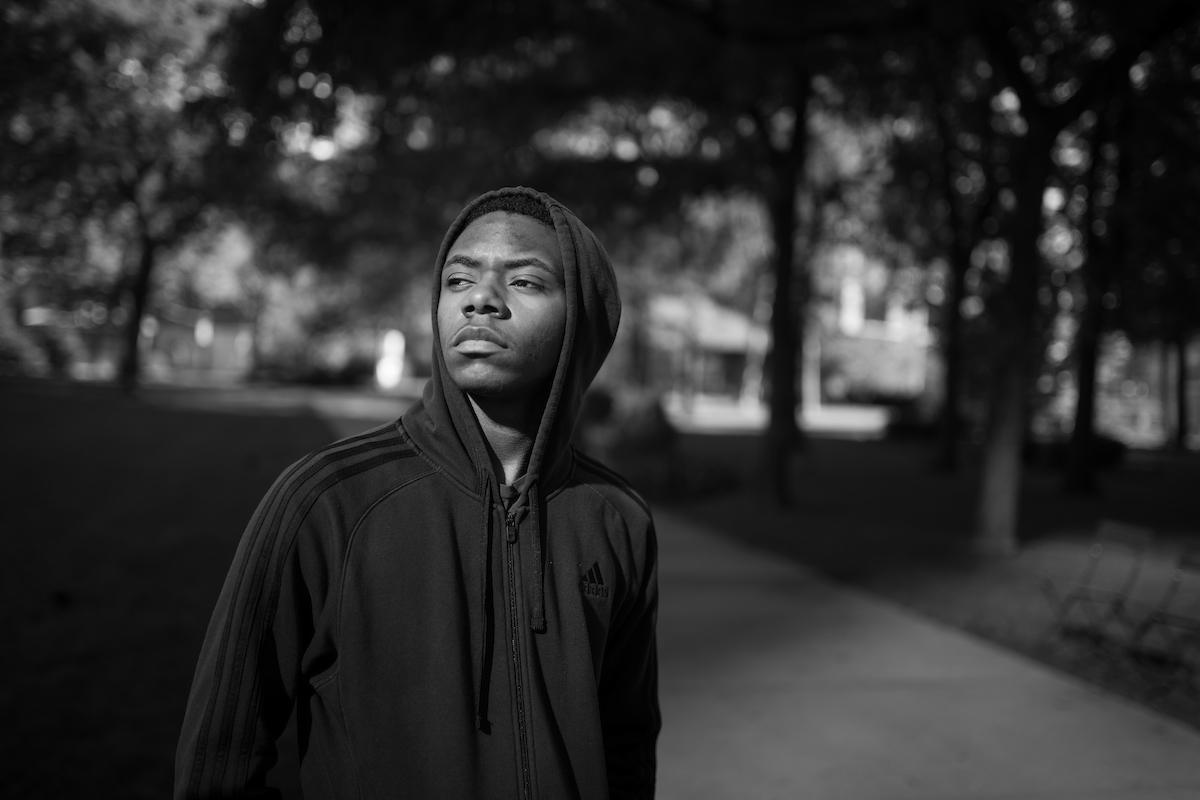Meet: Khali Raymond
My diagnosis is AS (Asperger's Syndrome) and I feel that it has placed a lot of limitations on my ability to express myself to others and to show people who I truly am. This disorder is asinine.
Have you experienced stigma?
I have experienced a lot of it. I was even teased because of it. I would get bullied in school about it. The children would call me bad names and mocked how I talked and frowned. It was real annoying. I was literally laughed at for my whole life.
How has your life been impacted by your experience?
I couldn't easily make friends. I couldn't get the most out of my friendships and relationships. I walked around the earth with this gigantic chip on my shoulder. People didn't want to be around me. They thought I was crazy when all I wanted was a little support and help.
When did you realize what you were experiencing wasn't typical?
I began to realize this when I was around 10 or 11. That was when I almost attempted suicide because of my syndrome and the fact that nobody would hear me out. I began to have outbursts a lot. I would throw tantrums. I would cuss a lot. I would feel very irritable, and wake up glum. I couldn't quite place my finger on my problems. That's what got me the most.
Early on, why didn't you seek help?
I was too afraid. I didn't want to be made fun of, or judged. People would tell me that nothing was wrong with me and I was just trying to seek attention. So, I thought, would a professional say the same thing that those people are saying?
What types of reactions are not easy for you to hear? What reactions do you appreciate when you open up?
It's not easy for me to hear that I'm crazy and I don't know what I'm talking about. It's not easy to hear harsh words and negative opinions from others as a result of breaking my stigma. I appreciate people telling me that I am very brave for speaking out and I'm a very strong person. I am also pleased to hear someone telling me how much light I had shed on their darkness because I spoke up instead of being silent.
What do you wish more people would understand?
I wish more people would understand that it's more than just a disorder. It's more than just acting like you're sick, or trying to seek attention. It's a real struggle to cope with the cons that comes with illnesses related to mental health. It's not easy at all. I wish more people would understand that these people with these disorders just wants someone to support them instead of blatantly criticizing them.
What coping skills are most effective for you?
I use writing as a coping mechanism. I like listening to music, and writing music. Poetry also helps me, too. I talk to people who are like-minded and who has a lot of wisdom on what mental health is all about. I like to work out. Fitness releases endorphins and it keeps your body in shape. I love remaining productive because it takes my mind off of my stigmas.
What are a few goals for your mental health?
I want to be able to share my story with more people. I want to surround myself with positivity things and remain in a positive environment.
What does progress look like to you?
Progress, to me, is realizing your issues and taking the necessary steps to your recovery. It's not letting a disorder define who you are. We're all human at the end of the day, and you shouldn't have to be judged based on your condition. Recovering from this isn't easy, but it's manageable.
Anything else?
A heads-up: I didn't let Asperger's define me. All the stuff I've been through, I went on to publish forty novels and to also start a music career. Never let your stigmas define who you are!
